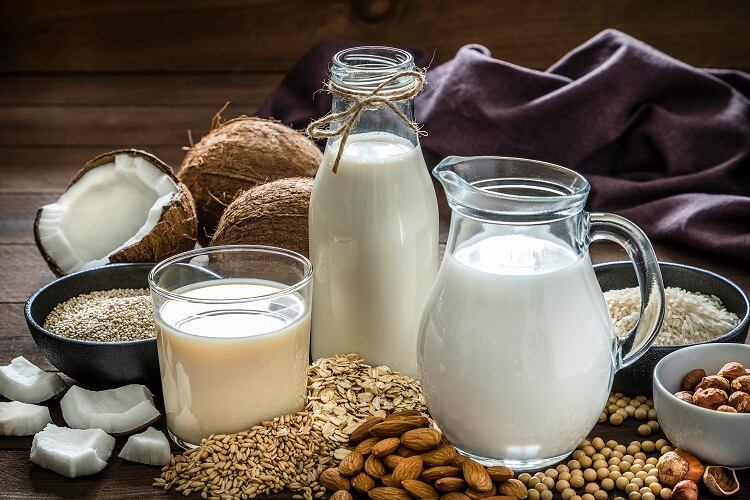Food processing is virtually essential to the modern system of food consumption and distribution. From the cooking we do in our kitchens, to traditional forms of preservation or drying, ‘processing has been around forever’, according to Unilever’s Future Health and Wellness Director Amelia Jarman.
As a nutritional scientist, Jarman places little stock in the concept that ultra-processed foods are necessarily unhealthy. “The label ultra-processed is a general term with no real classification… It is an emotive term used to symbolise highly processed products,” the Unilever executive suggested at a recent industry event in London last week. “As a nutrition scientist I have one view… Processing per se isn’t bad. What is bad is food that has no nutritional value.”
Perhaps unsurprisingly, this is a commonly held position among food industry research and development professionals. Nevertheless, according to the widely cited NOVA definition, ‘ultra-processed food’ refers to the processing of industrial ingredients derived from foods, for example through extrusion, moulding, hydrogenation or hydrolysis. Ultra-processed foods generally also include additives like preservatives, sweeteners, colours, flavours and processing aides. One can certainly see why the latest wave of plant-based innovation is often added to this category.
Developments in the food industry have seen the proliferation of new plant-based meat and dairy substitutes that mimic the organoleptic properties of their conventional counterparts. Much of this new wave of analogue contain additives like texturizers or emulsifiers. Meat-like products are produced from a wide range of plant bases, including textured soy, quinoa, corn, and other cereals, legumes or pulses. Plant-based drinks are frequently made from soy, almond, or rice. To produce a taste and texture that is akin to meat and dairy, significant levels of processing are generally required.

While many food brands insist it isn’t the processing itself that is unhealthy but rather the nutritional content of the end product, this view isn’t universally accepted. A recent large-scale observational study from Italy, for instance, concluded that both factors have an influence on health outcomes.
"Our results confirm that the consumption of both nutrient-poor or ultra-processed foods independently increases the risk of mortality, in particular from cardiovascular diseases. However, when we jointly took into account both the overall nutritional composition of the diet and its degree of processing, it came out that the latter aspect was paramount to define the risk of mortality,” explained Marialaura Bonaccio, epidemiologist of the Department of Epidemiology and Prevention at the IRCCS Neuromed of Pozzilli and first author of the study.
The plant-based term refers to a ‘huge range’ of ingredients and products as well as a ‘whole range of how consumers consider health’, Jarman observed. “What is clear is the two biggest drivers for consumers to shift to plant-based are, one: taste, and two: nutrition and health.”
Is the industry getting it right on both fronts?
Benchmarking plant-based against animal alternatives
For Claire Hughes, Director of Product Development and Innovation at UK supermarket Sainsbury’s, it is important that the plant-based category is inclusive. She believes that alternatives need to appeal to both flexitarian consumers – who she says are more likely to be interested in analogues – as well as vegetarians and vegans, who have a greater propensity to take a plant-forward approach.
“It is about having a range of different propositions and it’s about the consumers you are targeting,” she explained at the Future Food Tech event. “As a retailer we need to do both… and make all the products in our portfolio as healthy as they can be.”
On whether a product is classified as ultra-processed or not, Hughes played down the importance of avoiding particular additives – as long as they deliver the taste experience consumers are looking for. “Sometimes we talk a lot about clean label… I think the customer is less concerned about it than the brand owner or retailer,” she maintained. “We don’t get customers writing to us about ingredients in products. You start out with your toolkit to get the best taste and product for the market.”
Rather than look at the composition of a product in isolation, when Sainsbury’s assesses the nutritional profile of the plant-based items it puts on its shelves, the company does so by comparing them to their animal-based counterparts. “If you look at nutrition benchmarking, we look at plant-based alternatives to make sure they are, at a minimum, no worse than meat alternatives,” the retail expert detailed.

Tim Ingmire, Chief R&D Officer of Quorn Foods, believes that by this yardstick plant-based alternatives stand up pretty well. Citing 2021 research from UK health campaign group Action on Salt, he suggested that – while the plant-based category as a whole is often high in salt – it reports a positive performance against HFSS measures when compared to conventional meat products.
Action on Salt may have found that 75% of the plant-based food surveyed failed to meet the UK government’s salt reduction targets ‘but from a holistic nutritional perspective 14% of plant-based products were considered HFSS’ compared to 40% of processed meat products, the Quorn executive claimed.
This view would seem to be supported by Action on Salt itself. Speaking at the time, lead author of the study Roberta Alessandrini noted: “Plant-based meat is a healthier alternative to meat as it has fewer calories and less saturated fat.”
“It isn’t just the food, it’s the diet and plate more broadly,” Ingmire suggested. “Consumers are clear on [the fact that] diets too high in salt, sugar or fat are unhealthy. After that things get more muddy… With all that confusion we [plant-based innovators] need to lead.”
Hughes and Jarman agreed that the nutritional profile of a plant-based product needs to be considered in the context of an individual’s total diet.
“We have to refocus our diets to be healthy and not focus on individual products,” Hughes argued. “It’s also about labelling, the role of food within the diet, how much you eat,” Jarman added.
Building positive nutrition stories
Ingmire believes that, working with mycoprotein, Quorn is indeed taking a lead on nutrition as well as the taste experience. Mycoprotein is a fungi-based ingredient high in protein and fibre and low in fat that also delivers a natural meaty texture. Describing the ingredient as a ‘super protein’, the innovation chief highlighted the nutritional and functional strengths of this single cell protein.
This kind of approach can help highlight the positive aspects of plant-based nutrition, Sainsbury’s product development lead Hughes suggested.
"There is also the option to build positive nutrition stories into the product proposition, for example through fortification in plant-based milks,” she told delegates, adding: “We shouldn’t just think plant-based products of the future need to mimic meat. Because they don’t. They can be their own category.”
For Unilever’s Jarman, protein diversification will allow food formulators to build products that are more nutritionally dense, with the added benefit of helping to create a food system that is able to withstand supply-side shocks exasperated by extreme weather events and climate change. “We need to make sure this category isn’t based on one or two protein sources… There are clearly a lot coming, we just have to overcome the challenge of getting them to market at scale.”




